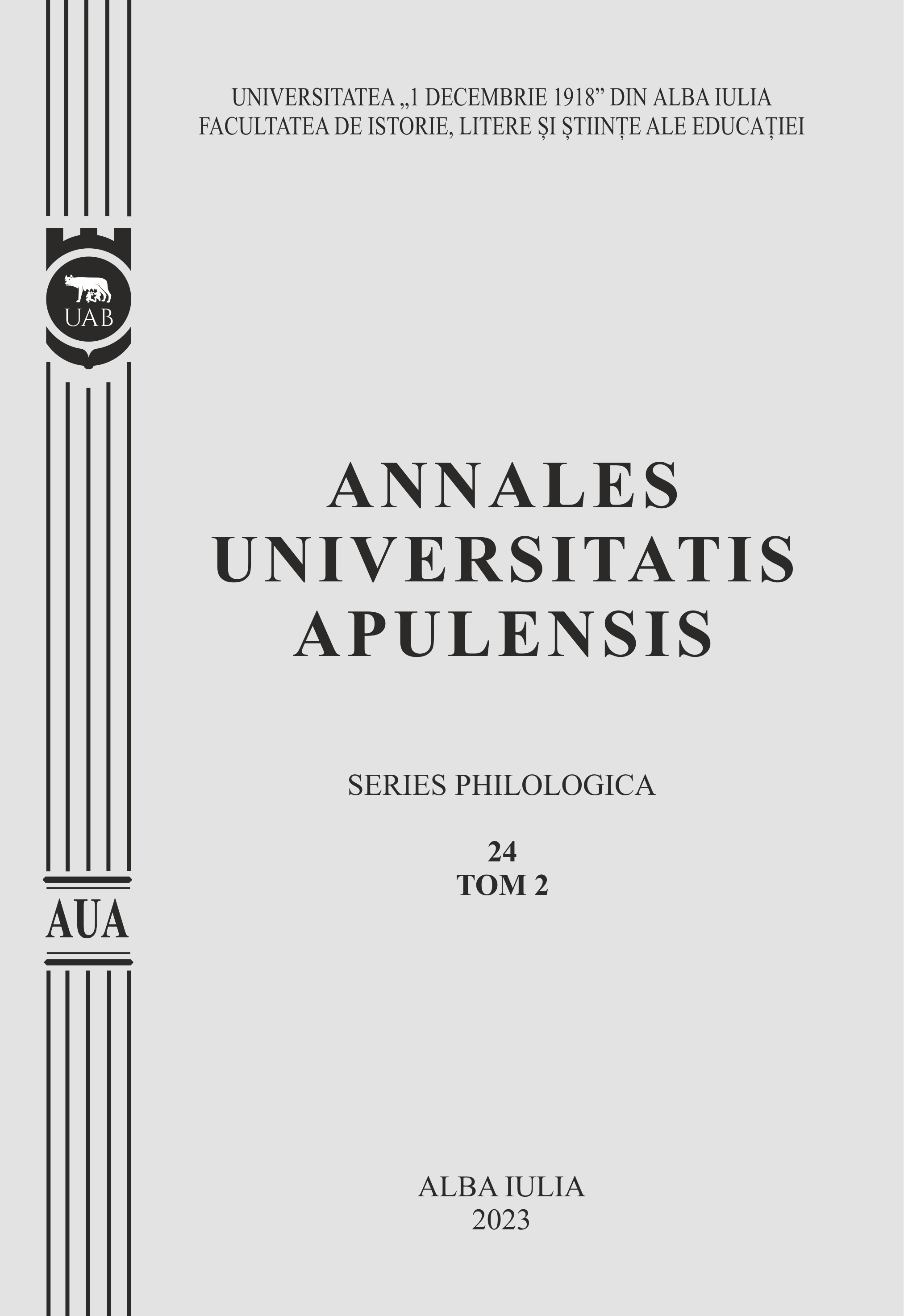REIFICARE ȘI ANXIETATE ÎN LITERATURA ANILOR `80
REIFICATION AND ANXIETY IN THE LITERATURE OF THE 80`S
Author(s): Cristian-Petru VieruSubject(s): Language and Literature Studies, Studies of Literature, Romanian Literature
Published by: Universitatea »1 Decembrie 1918« Alba Iulia
Keywords: reification; object; minimalism; meaning; subversiveness; eighties;
Summary/Abstract: The literature of the 80s is subject to the censorship established by the totalitarian regime. The high spirits become captive, and their writings will succeed in suggesting the oppressive atmosphere, the anxiety of the individual, the alienation even, by bringing to the fore things inanimate, but which have a great power of suggestion. Observing in detail the elements of an external space, which turns into a grotesque show based on the highlighting of banal props, was a practice that was supported by the followers of the New Roman. The gray universe, where the spirits are silenced, becomes evident by giving exaggerated importance to the external environment, which has the power to symbolize the emptiness of the soul. The memory of the recent world conflagration, the installation of totalitarian regimes in Eastern Europe had generated a radically different state of mind from the effervescence of change, renewal that characterized modernism. In Art as a technique, Viktor Shklovski launched the concept of defamiliarization, which would enter the lexicon of literary theory in the last century. The artist manages to animate things, to make them appear to us in a new light. Likewise, Martin Heidgger, for his part, distinguishes between things that exist in nature and things "endowed with value". (Being and Time). To be in the world means to be in one's own world, where neutral objects have been approached, they have become tools, they no longer exist only in themselves but as objects of the subject's intentionality, relevant to him. In other words, inanimate things will have the power to suggest states of fact, dramas of spirits, there being an excess of meaning beyond mere material presence. On the contrary, for the authors of the literature of the absurd, the object is not internalized but the subject reified; he alienates himself in the world and thus alienates himself, unable to find objectification through interaction with the environment, through creativity. In Romania, the 1980s authors, many of them followers of minimalism, limited themselves to describing details from a daily banal that had the power to suggest a suffocating reality, detrimental for the individual not enslaved by the communist regime and victim of discretionary policies. The existentialists wanted to bring to the fore the desolate man in an empire of objects that do not represent him and that produce disgust. In such a universe often dominated by kitsch that suggests material shortcomings, there can be no question of the saving illusion of art. The poetry and prose of the period become a crude diary in which daily automatisms are noted, the simple life full of material limitations in which the artist must survive. Authors such as Alexandru Mușina, Gheorghe Crăciun, Daniel Bănulescu or Olimpiu Nușfelean manage to capture the miserable universe through these daily observations, which have become literary texts, which are, to a certain extent, manifestos that subversively criticize the policies of the period.
Journal: Annales Universitatis Apulensis. Series Philologica
- Issue Year: 24/2023
- Issue No: 2
- Page Range: 397-405
- Page Count: 8
- Language: Romanian

